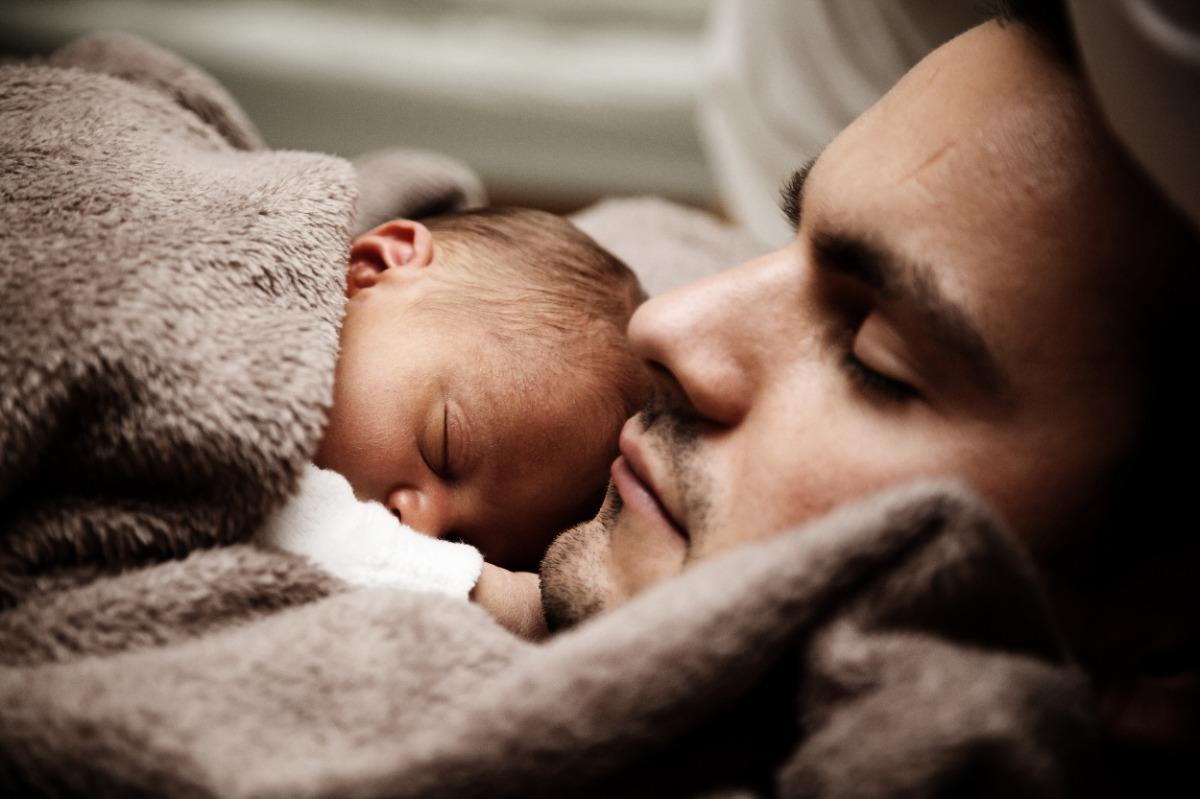
For many parents, bonding with a newborn is one of the most joyful jobs you can have. But bonding with your new baby is an intentional process–it’s not, as some assume, something that will simply happen automatically once your baby is born. For some parents, it’s immediate. For others, it can take time. And there’s no one right approach.
However, there are some simple tips and tricks that can make the bonding process easier–for parents of all kinds. After all, bonding at an early age is incredibly important for your baby. Babies with strong bonds (usually called “secure attachment”) learn how to trust you as a parent, can more ably handle stress later in life, and are better able to develop empathy through life.
What is Bonding?
For new parents, it’s easy enough to think of bonding as the strength of the emotional connection between you and your baby. This is called “attachment,” and medical professionals will typically categorize this characteristic in one of two ways:
- Secure attachment: This occurs when your baby feels a strong and supportive connection with you.
- Insecure attachment: When your bond is–for a variety of reasons–failing to meet your baby’s needs, medical professionals will typically categorize it as an “insecure” attachment.
It’s important to point out that “love” is not the same thing as attachment, though one may make the other easier. This is not to diminish the importance of love–but, rather to point out that love and emotional bonding fulfill two different functions. For example, you can love your newborn intensely, but be prevented by environmental factors from developing a secure attachment.
Attachment is measured in your ability to make your baby feel safe, manage stress, and meet your baby’s needs. Of course, no parent can meet those needs constantly and without fail. You won’t always know what your baby needs or wants–that’s not a lack of bonding, it’s just a normal part of being a parent! But as long as you provide your baby with care when they require attention, your newborn will know that you are there to help–even if sometimes you give them a bottle instead of a diaper change.
Tips for Bonding with Your Newborn
There are several ways that you can more confidently (and quickly) bond emotionally with your newborn. Some of the most popular include the following:
Skin-on-Skin Contact
Almost immediately once your baby is born, you’ll begin to hear about the importance of skin-on-skin contact. Touch can be very comforting to your baby–and to you as a parent. Make sure you’re carving out time every day for skin-on-skin contact time with your newborn. This will help your baby see you as a source of support and comfort, and aid you while you’re bonding with your newborn.
Small shows of affection
There are many ways for you to show your baby that you love and support them. Among them are the following:
- Give your baby gentle caresses during nap time or when changing their diaper.
- Smile at your baby; they may not know what it means yet, but it’s still nice for them to see.
- Talk to your baby in affectionate ways. You can even sing songs or lullabies to them. Your baby, after all, is used to hearing your voice. So talking can have a reassuring effect.
These small shows of affection can help your baby know that you are there to provide comfort and support.
Hold your baby often
Babies enjoy being held! Spend some time every day making sure you hold your baby. When you wrap up your baby and hold them in your arms, you also get more time to make valuable skin contact with them. Again, this is usually very comforting for your newborn.
Feed your baby (and make eye contact)
Feeding time is a great opportunity to bond emotionally with your newborn. During breastfeeding, babies can get a good amount of skin on skin contact. And even bottle feeding can help babies feel warm, fed, and comfortable. You and your baby can develop a special bond during those midnight feedings.
Respond to Your Baby’s Cries
Sometimes bonding with your newborn is also somewhat straightforward: respond to your baby’s cries. Some parents may think that responding quickly to a baby’s cry every time will somehow spoil them–teaching them to cry more often. But the reality is just the opposite. Responding to your baby’s needs will create trust–the kind of trust your baby will need to be independent later in life.
To be sure, “responding to your baby’s cries” does not necessarily mean you have to solve your baby’s problems every time. You may not be able to. After all, it’s not always easy to know what a crying baby needs.
But by responding, you will reinforce your presence as a trusted and supporting person in the baby’s life. They know that you’ll be there to comfort them, even if you can’t solve the problem. And this is invaluable as the baby grows up.
Talk to Your Doctor About Bonding
Bonding with your newborn is not always easy, and sometimes there are physiological issues that can get in the way. If you feel like you’re having a tough time bonding emotionally with your newborn, you can talk to your pediatrician about possible solutions.
Medical intervention may be able to make the process easier, or at least remove some of the physiological roadblocks (for example, if your baby is ill, medical therapy may be able to treat the illness). Don’t ignore the importance of bonding!
For more information, talk to your pediatrician today!
